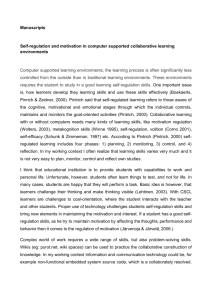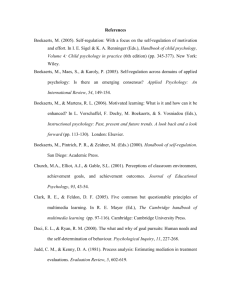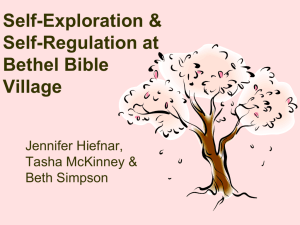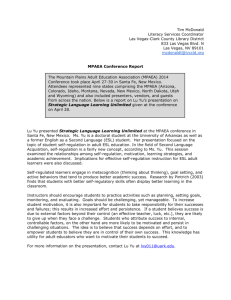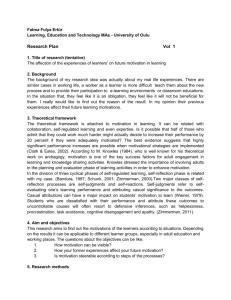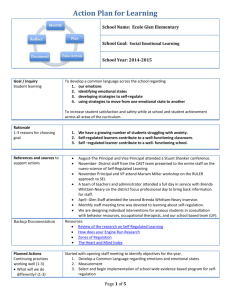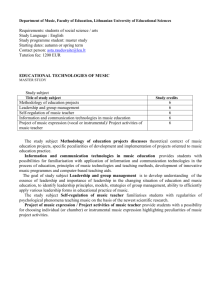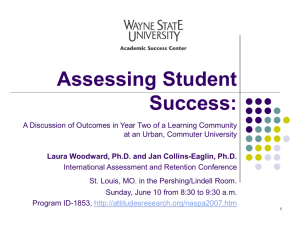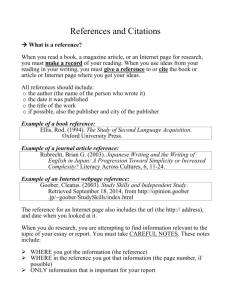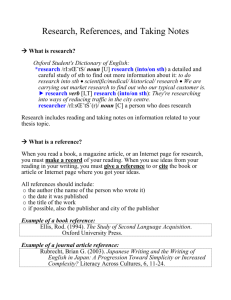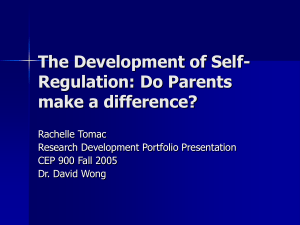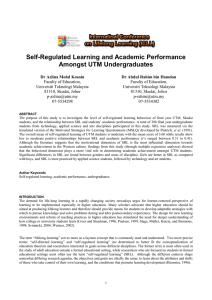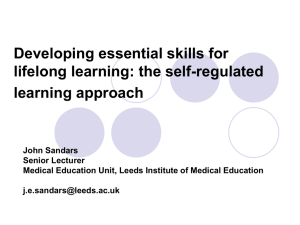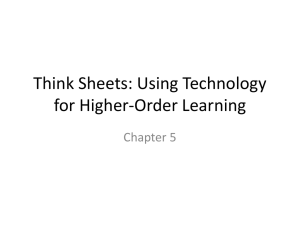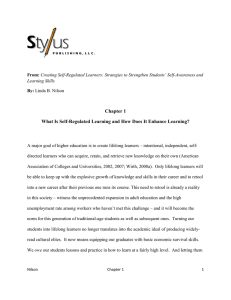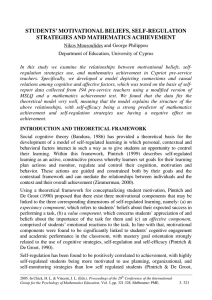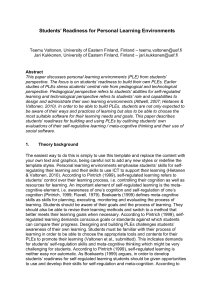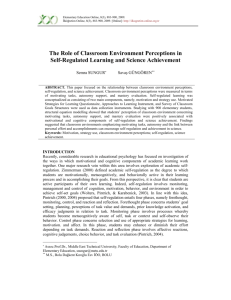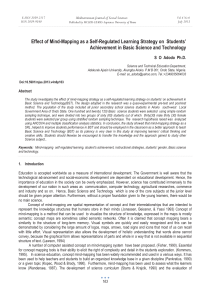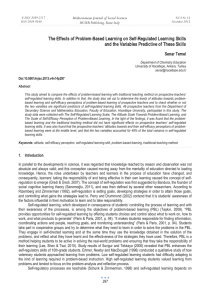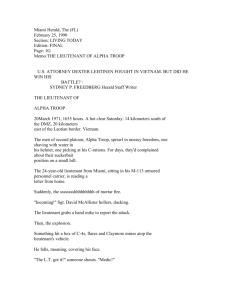Manuscripts Self-regulation and motivation in computer supported
advertisement
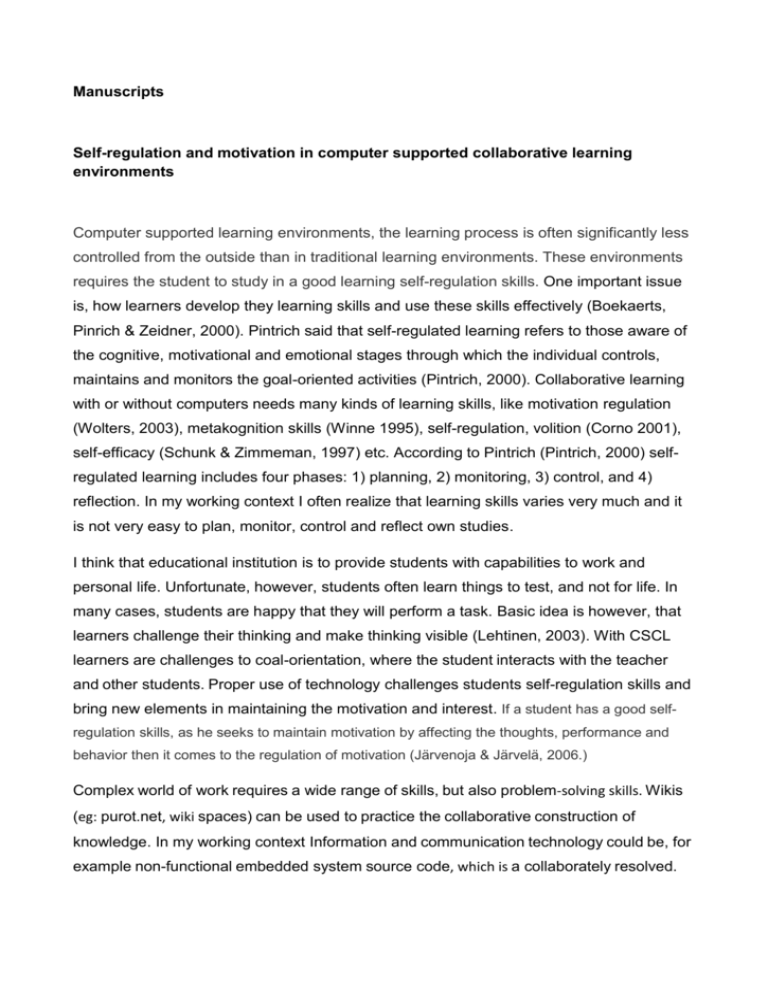
Manuscripts Self-regulation and motivation in computer supported collaborative learning environments Computer supported learning environments, the learning process is often significantly less controlled from the outside than in traditional learning environments. These environments requires the student to study in a good learning self-regulation skills. One important issue is, how learners develop they learning skills and use these skills effectively (Boekaerts, Pinrich & Zeidner, 2000). Pintrich said that self-regulated learning refers to those aware of the cognitive, motivational and emotional stages through which the individual controls, maintains and monitors the goal-oriented activities (Pintrich, 2000). Collaborative learning with or without computers needs many kinds of learning skills, like motivation regulation (Wolters, 2003), metakognition skills (Winne 1995), self-regulation, volition (Corno 2001), self-efficacy (Schunk & Zimmeman, 1997) etc. According to Pintrich (Pintrich, 2000) selfregulated learning includes four phases: 1) planning, 2) monitoring, 3) control, and 4) reflection. In my working context I often realize that learning skills varies very much and it is not very easy to plan, monitor, control and reflect own studies. I think that educational institution is to provide students with capabilities to work and personal life. Unfortunate, however, students often learn things to test, and not for life. In many cases, students are happy that they will perform a task. Basic idea is however, that learners challenge their thinking and make thinking visible (Lehtinen, 2003). With CSCL learners are challenges to coal-orientation, where the student interacts with the teacher and other students. Proper use of technology challenges students self-regulation skills and bring new elements in maintaining the motivation and interest. If a student has a good selfregulation skills, as he seeks to maintain motivation by affecting the thoughts, performance and behavior then it comes to the regulation of motivation (Järvenoja & Järvelä, 2006.) Complex world of work requires a wide range of skills, but also problem-solving skills. Wikis (eg: purot.net, wiki spaces) can be used to practice the collaborative construction of knowledge. In my working context Information and communication technology could be, for example non-functional embedded system source code, which is a collaborately resolved. Like Webb said (Webb, 1989), “while contructing explanations, the learners become aware of their thinking, of the missing knowledge and lack of understanding” References Boekarts, M., Pintrich, P. R., & Zeidner, M. (Eds) (2000). Handbook of self-regulation. San Diego, CA: Academic Press. Corno, L. (2001). Volitional aspects of self-regulated learning. In B. J. Zimmerman & D. H. Schunk (Eds), Self-regulated learning and academic achievement: Theoretical perspectives (pp. 191-225). Mahwah, NJ: Lawrence Erlbaum. Lehtinen, E. (2003). Computer-supported collaborative learning: An approach to powerful learning environments. In E. De Corte, L. Verschaffel, N. Entwistle & J. Van Merriëboer (Eds), Powerful learning environments: Unravelling basic components and dimensions (pp.35-54). Amsterdam: Pergamon. Pintrich, P.R. (2000). The role of goal orientation in self-regulated learning. In M. Boekaerts, P.R. Pintrich & M. Zeidner (Eds.), Handbook of self-regulation (pp.451-502). San Diego, CA: Academic Press. Schunk, D. H., & Zimmerman, B.J. (1997). Social origins of self-regulatory competence. Educational Psychologist, 32, 195-208. Webb, N. (1989). Peer interaction and learning in small groups. International Journal of Educational Research, 13, 21-40. Winne, P.H. (1995). Inherent details in self-regulated learning. Educational Psychologist, 30, 173-187. Wolters, C. A. (2003). Regulation of motivation: Evaluating an underemphasized aspect of self-regulated learning. Educational Psychologist, 38, 189-205.
